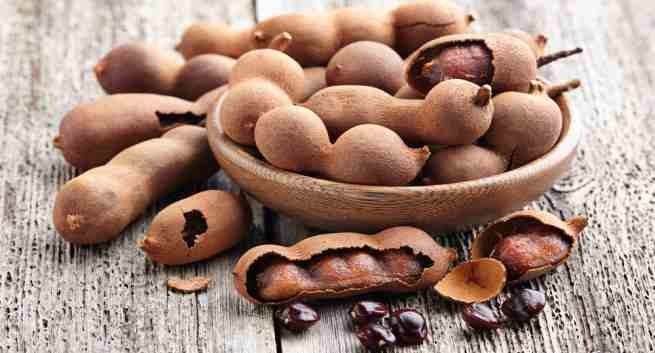Nutrition
Health benefits of Peanut

• Peanut
Peanuts are delectably crispy, nutty, and delicious. The kernels are rich in numerous noteworthy nutrients that are beneficial to health and overall wellness.
These tasty nuts can be a healthy addition to diet as they are rich in beneficial minerals, vitamins, and plant compounds.Most people take it at snacks.Peanuts are nutritionally dense and healthy.
– Promote healthy heart
Eating peanuts helps protect the body against coronary heart disease (CHD). A study conducted by the Harvard School of Public Health found that peanuts lower bad cholesterol (LDL) levels.
-Aids weight Loss
Peanuts are very high in calories, but they contribute to weight loss instead of weight gain. Peanuts are energy-dense foods. That is why having them as a snack may make you consume fewer calories later in the day. Peanuts elicited stronger feelings of fullness when consumed as a snack than with a meal. This may eventually help with weight loss.
-Prevents gallstones
Consumption of peanuts is linked to a lower risk of gallstones. A study conducted by the Harvard Medical School and Brigham and Women’s Hospital (Boston) found that consumption of peanuts lowers the risk of gallstones. Men consuming five or more units of nuts (including peanuts) a week are at a lower risk of gallstone disease.
– Aids blood sugar control
Adding peanuts or peanut butter to a meal does not spike blood sugar levels. Having them along with a meal would stabilise blood sugar levels.
-Reduces cancer risk
High intake of peanuts (including other nuts) has been associated with a reduced risk of colorectal cancer. The isoflavones, resveratrol, and phenolic acid found in peanuts have anticancer properties which may help reduce the risk of cancer
-Treat erectile dysfunction
Peanuts are rich in arginine, which is an essential amino acid (Arginine has been studied extensively as a possible treatment for erectile dysfunction.
-Boosts energy
Peanuts are a rich source of protein and fibre that assists in the conversion of carbohydrates into energy. The protein content of peanuts is around 25 per cent of the total calories. The fibre and protein combination in peanuts slows down the digestive process to facilitate a steady release of energy into the body.
-Have antioxidative properties
Peanuts are rich in numerous plant compounds and antioxidants. Most of these compounds are available in the skin of peanuts, which should be eaten raw to get all of its benefits. Some of the plant compounds that are readily available in peanuts include resveratrol, coumaric acid, and phytosterols that help impair the absorption of cholesterol, isoflavones, and phytic acid found in plant seeds.
Source: Health.com
Nutrition
Benefits of Tamarind Juice

Tamarind juice is particularly abundant in vitamin C, which is important for a strong immune system, healthy skin and wound healing.
Additionally, tamarind provides significant amounts of B vitamins like thiamin, riboflavin and niacin, as well as essential minerals like potassium, magnesium, and iron.
– Antioxidant properties
Tamarind contains potent antioxidants, such as polyphenols and flavonoids, which combat harmful free radicals in the body. This oxidative stress reduction can help prevent cell damage and lower the risk of chronic diseases, including cancer.
-Digestive health
Tamarind contains dietary fibre and natural laxatives that promote regular bowel movements, alleviate constipation and improve overall gastrointestinal health.”
– Heart health
Regular consumption of tamarind juice may have a positive impact on cardiovascular health. It can help lower cholesterol levels due to its high fibre content and antioxidants, reducing the risk of heart disease.
– Anti-inflammatory properties
Tamarind juice does a great job in curbing inflammation in the body. High in anti-inflammatory compounds such as polyphenols and bioflavonoids, this property makes it potentially beneficial for individuals suffering from conditions like arthritis or chronic inflammatory diseases.
– High magnesium content
Tamarind is rich in magnesium- 110 mg per 120 g of pulp. This simply concludes that drinking tamarind is a convenient way to meet your daily magnesium requirements. It plays an important role in the formation of bones, regulates heart rhythm, and contraction of muscles, and keeps blood sugar levels under check.
Source; Healthshots.com
Nutrition
Tamarind drink (Saamia)

Ingredients
• 100 grams of tamarind seed (peeled including seeds)
• Water
• 50 grams of ginger
• 2 grams of alligator pepper
• 3 grams of cloves
• Sugar to taste
Preparation
• Peel and wash ginger, cloves, alligator pepper and blend.
• Soak tamarind overnight (optional)
• Boil water and pour over tamarind
• Soak for several hours
• Mash the mixture for the pulp to come off the seeds
• Add grounded or blended spices to the mixture
• Add water and boil for 30 minutes
• Put off fire and allow to cool
• Sieve and strain to get rid of particles (spices and pulp)
www.thespectatoronline.com
Your Weekend Companion







